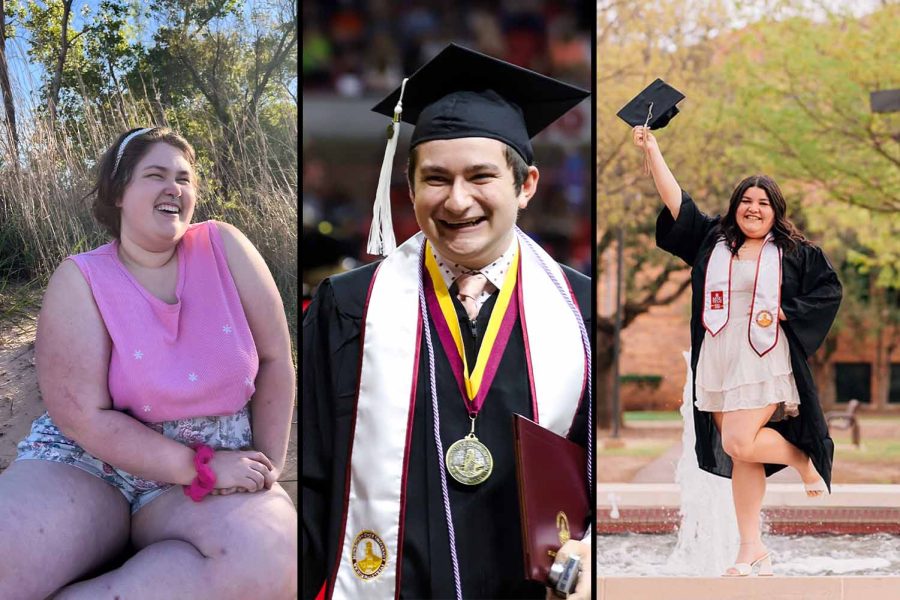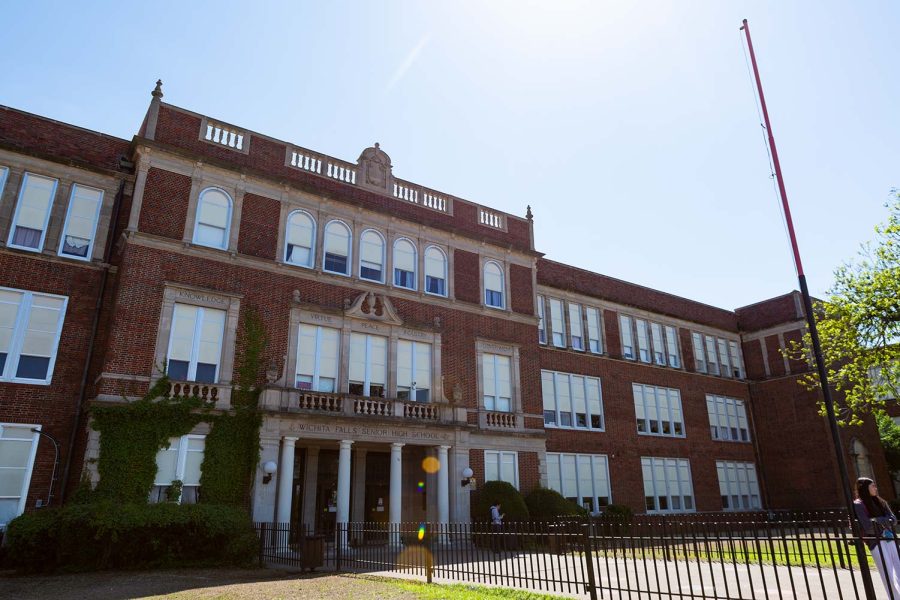The United States of America was built on the idea of every person having religious freedom.
But as more time passes, the more it seems, that politicians as well as other social leaders are trying to convince society that American values are actually Christian values.
So what has happened to the religious freedoms Americans were promised? Equal religious opportunity has been diminished.
Granted, religious tolerance has increased.
Does this increased tolerance excuse the nation from leaving people feeling like Christian values are what the country should lean on?
This “Christianity rules” trend is obvious at MSU.
Currently there are 16 registered religious organizations on campus.
-Baptist Student Ministry
-Campus Crusade for Christ
-Catholic Campus Ministry
-Fellowship of Christian Athletes
-Great Awakening Ministry
-Lutheran Student Association
-Mustangs for Christ
-Pagan Student Union
-Portico
-Sigma Phi Lambda
-Student Nurses Christian Fellowship (Nurses4Christ)
-Wesley Foundation
-Young Life
-Colonial Student Organization
-SGI Student Buddhist Association
-Mentors on a Mission
-Cru (Christ Centered Laborers)
Of these organizations, only two are unrelated to Christianity: the Pagan Student Union and The Student Buddhist Association.
What does this say about the MSU campus?
To me it says that either a) students outside of the Christian faith are few and far between, or b) the students who are not Christians are too hesitant to stand up and start their own organizations.
Students with religions based outside the roots of Christianity may be practicing their faith off-campus, but are they being oppressed by the overwhelming amount of Christian support services and Christian tendencies on campus?
There is a Jewish community in Wichita Falls, but there is not a Jewish organization on campus.
There is an Islamic Society in Wichita Falls, yet nothing on campus.
As universities are places to grow and develop, it would only be right if the students who do not practice Christianity began organizations to let other students of the same faith know they are not alone in their beliefs.
In the MSU student handbook, 13 religious organizations are listed. The Student Buddhist Association is not listed.
Does this give new students a chance, especially if they are far from home, to stay true to their faith and feel welcome?
Seeing that the faith a student has been practicing his or her entire life is unrecognized by other students at the school can leave new students feeling isolated, alone and sometimes, for strong believers, can make him or her feel lost in a new and unknown environment.
Instead of feeling welcomed, they may experience a feeling of oppression because their faith is not openly practiced.
MSU is located in the “Bible Belt”, the region the United States deeply associated with Christianity.
To outsiders, MSU looks like a state school should; unbiased, religiously unaffiliated, and definitely not leaning toward the right.
But to the students who actually go here, the look is much different.
Sure, there aren’t Christian organizations at every corner ambushing students to convert or join their group, but there are definitely Christians present all over campus.
Instead of using religion as a bonding and growing technique between students of different faiths, MSU has a unspoken rule that religions unaffiliated with each other should stay that way instead of learning and working with each other.
The University of Southern California has an office of religious life where students of all religions are able to gather and able to learn about other group’s values.
At Midwestern each organization is its own entity, competing and hiding from others, trying to convert as many people as they can and recruiting to become larger than other groups.
It’s time that MSU brings religious student organizations together and lets students grow in their faith and learn from the faith of others as well.
Categories:
Religion continues to divide itself at Midwestern State
January 31, 2012
Story continues below advertisement
0







